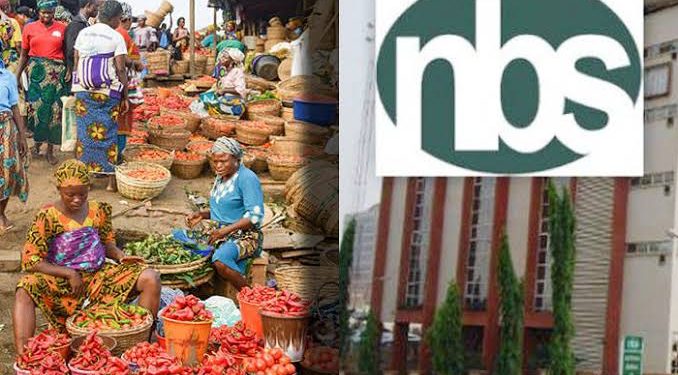Nigeria’s agricultural sector is facing renewed distress as the National Bureau of Statistics (NBS) reports a steep 28.98 per cent increase in the average cost of farm produce between January and May 2025. The price index, which stood at 110.5 in January, surged to 142.53 by May—underscoring the intensifying food inflation crisis that continues to squeeze consumers and destabilize rural livelihoods.
The data from NBS paints a troubling picture of mounting pressure on local food prices, a situation largely attributed to persistent insecurity across key farming regions, particularly in Nigeria’s central agricultural belt. The report revealed that while price increases were incremental in the first four months of the year, a dramatic 22.28 per cent spike in May alone amplified concerns about deepening supply chain disruptions and reduced agricultural output.
From February to April, the increases remained modest: 112.46 in February (up 1.77%), 115.43 in March (up 2.65%), and 116.46 in April (up 0.88%). But the sudden leap to 142.53 in May reflects the volatile state of food markets in the face of growing insecurity, most notably in Benue State, often referred to as Nigeria’s “food basket.”
In Benue, food inflation has remained one of the highest in the country, with prices rising at an alarming pace in the first quarter. By April 2025, food prices had surged by 25.6 per cent within just one month, pushing year-on-year food inflation to a staggering 51.8 per cent. The state’s headline inflation also climbed to 34.3 per cent, rising by 12.8 per cent within the same month. Though May saw a significant year-on-year drop in food inflation to 22.0 per cent, Benue still recorded a monthly increase of 4.1 per cent in food costs, indicating that short-term supply shocks remain persistent even amid statistical moderation.
Despite the decline in Benue’s food inflation on a year-to-year basis, the violence and killings in parts of the state continue to derail farming activities and disrupt food logistics. Many farmers have been displaced, farmlands destroyed, and agricultural activities suspended due to insecurity, leaving a visible gap in both food availability and affordability.
While locally grown produce has experienced erratic price swings, the Imported Food Price Index has remained more stable in comparison. It rose moderately from 111.5 in January to 113.4 in February (a 1.3 per cent increase), then moved marginally to 113.9 in March (0.44 per cent). April saw a further rise to 115.3 (1.23 per cent), before dipping slightly to 113.7 in May—a 1.39 per cent drop. This relative stability in imported food prices contrasts sharply with the escalating costs of local agricultural goods, raising concerns about the increasing reliance on food imports to cushion domestic shortages.
According to the NBS, Nigeria imported food and beverages worth ₦1.67 trillion between January and March 2025. This marks a five per cent increase compared to ₦1.59 trillion recorded in the same period in 2024. The rise in food imports, amid declining local production, reveals a growing dependence on foreign food sources—one that could further strain the nation’s trade balance and expose consumers to exchange rate fluctuations.
Overall, the NBS figures highlight the fragile state of Nigeria’s agricultural and food supply systems. With domestic food production under strain due to insecurity, rising production costs, and displacement of farmers, price volatility is likely to persist in the coming months. As the government continues to tout food security as a national priority, the latest data serves as a sobering reminder of the urgent need to stabilize rural communities, rebuild agricultural productivity, and strengthen local supply chains to prevent further erosion of food access across the country.










